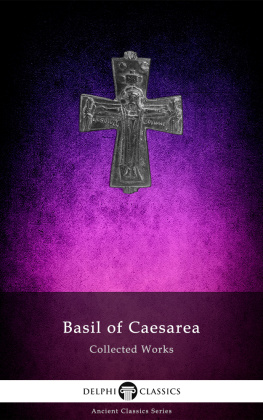PREFACE
NIU, more commonly known as Savage Island, lies 1,000 miles N.N.E. of New Zealand, and 300 miles S.S.E. of Samoa, in the loneliest spot in that part of the Pacific. Its iron-bound coasts tempt no vessels to call for supplies. At rare intervals great four-masted timber-ships pass in the offing; more rarely still schooners call to replenish the stock of the traders and to carry away their copra.
I went to the Niuans in the name of the Queen and Empress whom the world is still lamenting, and I do not like to think of what our loss means to the people in these remote outposts of her Empire. The oldest native in the South Seas remembers no sovereign's name but hers. She was a real person to them all; a lady who had made them her especial care, had sent the gospel to them, and had bade them lay aside their clubs, and live in peace, order, and equity. Vika, as they called her affectionatelyVika, after whom they named their girl-childrenwas the benign, all-powerful chief, whose house was built upon the coral strand of Lonitoni (London), opposite the landing-place, where her men-o'-war were moored stem and stern in rows before her door. She read their letters with her own eyes, and had her captains to sit before her on the floor-mats while she gave them messages for the brown folk in far islands. And now Vika, the well-beloved, has left them, mourned by the empire of which they were but the tiniest part. It was hers, and she never saw it; but we, who have seen itwho have, in the humblest way, helped in the making of itthink with heavy hearts of how much hangs upon a name, and of how hard it will be to reassure them, when, as they say of their own dead kings, "kuo hala 'ae langi""the heaven has fallen."
Northampton , 1901
CHAPTER I
THE ISLAND AND ITS PEOPLE
"TO Her Majesty Queen Victoria, Queen of Great Britain, the first kingdom of all the kingdoms of the world.
"We the chiefs and rulers and governors of Niu-Fekai desire to pray Your Majesty, if it be your pleasure, to stretch out towards us your mighty hand, that Niu may hide herself in it and be safe. We are afraid lest some other powerful nation should come and trouble us, and take possession of our island, as some islands in this quarter of the world have been taken by great nations. On account of this we are troubled, but we leave it with you to do as seems best to you. If you send the flag of Britain, it is well; or if you send a Commissioner to reside among us, that also will be well.
"Our king, Tuitonga, died on the 13th July last, but before he died he wished to write to Your Majesty, and beg you to send the powerful flag of Britain to unfurl in this island of Niu, in order that this weak island of ours might be strong. It was from your country that men first came to this island to make known the name of the Lord, and through them this land of Niu-Fekai became enlightened; then, for the first time, this people knew that there were other lands in the world. Therefore the people of this land rejoice in you and in your kingdom. This land is enlightened by the gospel of Jesus Christ brought by the subjects of Your Majesty, and that is why we make this petition.
"That is all we have to say. May Your Majesty the Queen and your powerful kingdom be blessed, together with the kingdom of Niu, in the kingdom of Heaven.
"I, Fataiki, write this letter."
Thus wrote Fataiki, King of Niu, otherwise known as Savage Island, thirteen years ago.
The first request for a protectorate was made to a missionary as early as 1859, when the people were in the first heat of conversion to Christianity; this seems to have gone no further. But King Fataiki's letter reached its destination, and England, "the first kingdom of all the kingdoms of the world," England the earth-hungry and insatiable (as others see her), took thirteen years to think it over, and then, having received a second letter more precisely worded, reluctantly consented. It is an object-lesson of the way in which we blunder into Empire.
It was not until the Germans began to develop their plantations in Samoa that Niu was discovered to have a value. The Polynesian races, as everybody knows, are a picturesque, easy-going, and leisure-loving people, too fond of home to travel, and too indolent to do a steady day's work. A dash of some alien blood, as yet unrecognised, has played strange freaks with the men of Niu. Alone among Polynesian races they opposed the landing of Europeans; alone they love to engage as labourers far from home, and show, both at home and abroad, a liking for hard work; no other island race has the commercial instinct so keenly developed. The number of them working in Samoa has increased so rapidly in recent years that their houses form a distinct quarter of the town of Apia, and when the recent troubles broke out they went in a body to the British Vice-Consul and claimed his protection as British subjects. It was hard to turn away people who were fellow-subjects by inclination, and to put the case at its lowest, our need of plantation labourers is tenfold greater than the Germans'. And so, when we had to receive from Germany an equivalent for the surrender of our claims in Samoa, Niu was thrown into our side of the scale in what is known as the "Samoa Convention, 1899," and it became my duty when negotiating a British protectorate over the independent kingdom of Tonga in 1900, to visit the island and announce a favourable answer to the petition forwarded thirteen years before.
So little was known of the lonely island that we approached it with mixed feelingsanxiety on the part of the captain, and high curiosity in those unconcerned with the navigation of the ship. There were, indeed, other feelings among our company, for we had been plunging into a strong head sea ever since we left the shelter of a Tongan harbour, and H.M.S. Porpoise has a reputation as a sea boat on which it would be charitable not to enlarge. The island has never been surveyedindeed, the greater part of it is still indicated in the chart by a dotted lineand the brief paragraph devoted to it in the "Sailing Directions" is not encouraging to navigators. While the wind was in the east, a precarious anchorage might be found at more than one point on the western side, but let the wind shift to the west, and you were on a lee shore of precipitous cliffs.









